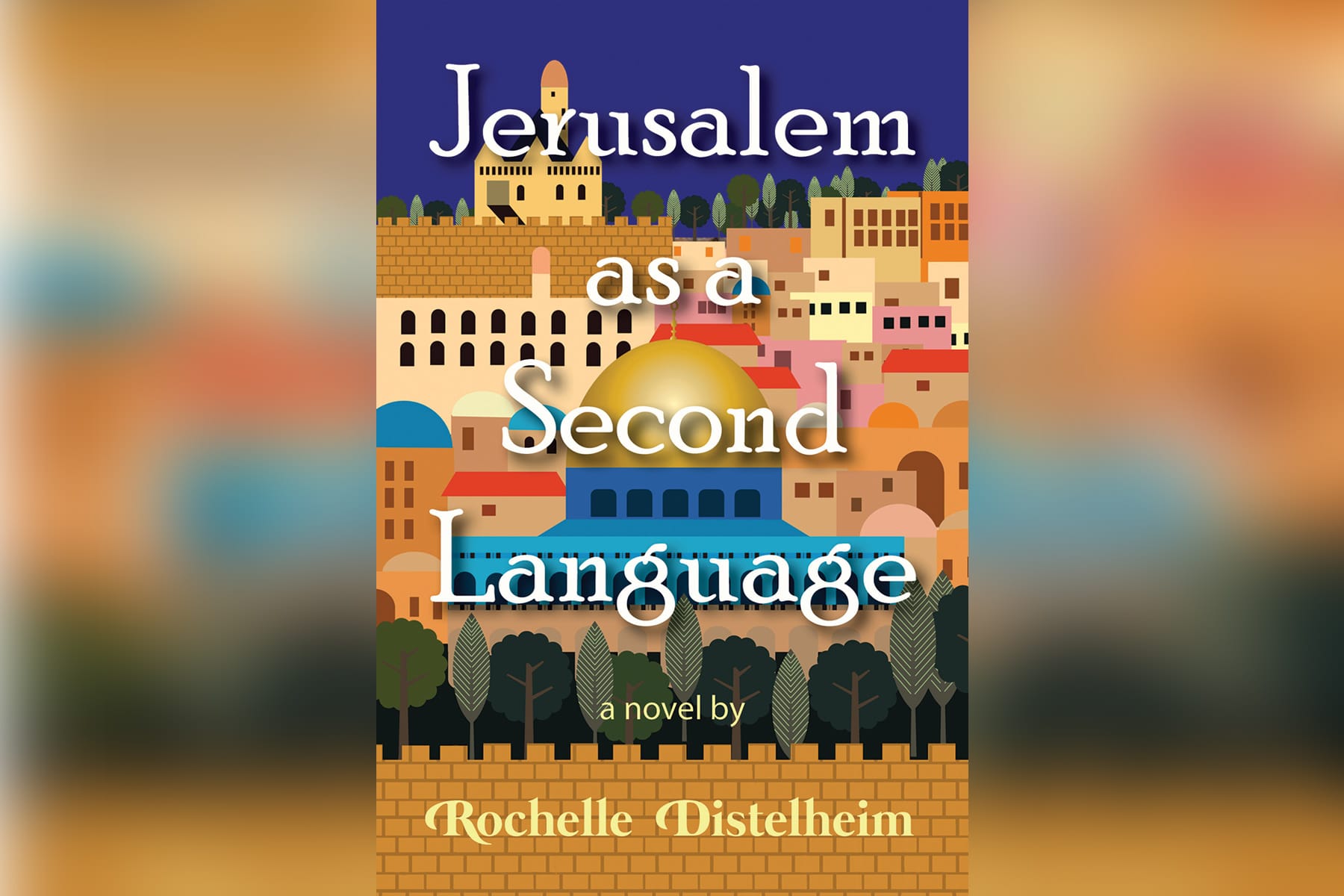
The setting of “Jerusalem as a Second Language,” a new novel by Rochelle Distelheim (Aubade Publishing), harks back to a remarkable moment in history. The year is 1998. The place is St. Petersburg. And the very first person we meet is Mikhail Gorbachev.
“Gorbachev was the one who said to the Jews what had never before been said: Go, find happiness, find love, good luck, sending us off to other countries in a blizzard of applications and visas and papers stamped in gold leaf,” observes Manya Zalinikov, the character whose voice we hear in Distelheim’s enchanting and winning book, a remark whose good cheer is purely ironic.
Manya and her family are olim, newly arrived in Israel after an exit from Russia that reads more like escape than emigration, but she is homesick. “Why my yearning for Russia, where, until now, one’s Jewishness was treated as a birth defect?” she muses. “Unreasoned longing. Or, perhaps, a sad knowing that I cannot slip out of my St. Petersburg life as easily as a snake slips out of its skin.”
Similar stories have been told about other generations of Jews who have left their places of birth and reinvented themselves, both in Israel and the Diaspora. “Jerusalem as a Second Language,” however, allows us to experience the profound culture shock of Jews from post-Soviet Russia who find their way to a country and a people that are famously intense.
“Jerusalem as a Second Language” allows us to experience the profound culture shock of Jews from post-Soviet Russia who find their way to a country and a people that are famously intense.
Manya, for example, admonishes her daughter, Galina, against the sun and wind: “You want to age early, like Israeli women?” She sees signs everywhere in Russian, French and Spanish: “Please speak Hebrew,” but she finds the native language of her new homeland to be an affliction: “My mouth, my voice, my being, refused to make peace with the severe demands of spoken Hebrew.” When she learns that Galina’s army service will be deferred for two years, Manya is outraged: “Not for two hundred years, if I’m alive.”
“Try to relax yourself into it,” urges her husband, Yuri.
“Yuri, the word relax and the word Israel should not appear in the same sentence,” she replies.
Distelheim tells a heartfelt and often heartbreaking story with a light touch and a sparkling sense of humor. One fellow arrival from Russia promptly renames her dog Ben-Gurion, explaining that, back in Russia, he was first called Khrushchev and then Yeltsin. Galina pointedly asks where the milk and honey are and then declares that the phrase “is an advertising slogan Russians made up to get the Jews to leave.”
Still, the author is open-eyed and plainspoken about the challenges that her characters are forced to confront in Israel. Back in Russia, Jews were “not considered to be real Russians.” Here in Israel, they may not be considered to be real Jews if they lack Jewish parents “on both sides.” Even though she is fully Jewish, Manya arrives in Israel without knowing much about Judaism: “Who’s Queen Esther?” she whispers to a companion when the name comes up in conversation. And Manya bristles when her bag is searched at a security checkpoint. “These Russians are troublemakers,” the young soldier cracks, “everyone knows that.”
Manya’s biggest problem, however, is how to keep Galina out of the army. Since married women are not drafted, she sees marriage as the solution. “Yuri said God had His reasons,” observes Manya, whose husband is now fully observant and highly disapproving of Manya’s worldliness. “In His infinite wisdom, He had sent us to Israel. Possibly, He had also sent a young Russian man to Israel to marry Galina and keep her out of the army, to make her happy. To make me happy.”
At the same time, she finds a job as a pianist at a supper club where Russian Jews gather, thus inviting the reader into the “Russian underground in Jerusalem,” a place every bit as dangerous and exotic as an Eric Ambler novel. She suspects that the club owner is engaged in diamond smuggling, but we see that Manya’s suspicion is only a hopeful thought because, after all, diamonds are “cleaner” than other criminal enterprises that she would rather not think about.
Amid these conflicts, her husband’s rabbi and the nightclub owner emerge as the angel on one shoulder and the devil on the other shoulder. The struggle between them is yet another strand of narrative that drives the novel forward so powerfully that we come to see “Jerusalem as a Second Language” as both a love story and a thriller. Almost inevitably, the wave of tension washes over Yuri and Manya, and their clash over what is permitted and what is forbidden threatens to tear their marriage apart. When Manya blames the moral crisis on “[t]his country, this frantic, frenzied, violent country,” Yuri retorts: “You blame Israel? Israel did this?”
Yuri means to put the blame squarely on his wife. Yet it is also true that Israel itself is perhaps the single most important character in “Jerusalem as a Second Language,” which builds to a climax that is explosive in every sense of the word. To put it another way, the men and women we meet are imaginary but the place where they encounter one another is very real. “I am shattered,” says one character, and another one replies, “I am not exactly in one piece.” Thanks to the author’s superb skill as a storyteller, these words are literal and metaphorical at the same time.
Jonathan Kirsch, author and publishing attorney, is the book editor of the Jewish Journal.






















 More news and opinions than at a Shabbat dinner, right in your inbox.
More news and opinions than at a Shabbat dinner, right in your inbox.